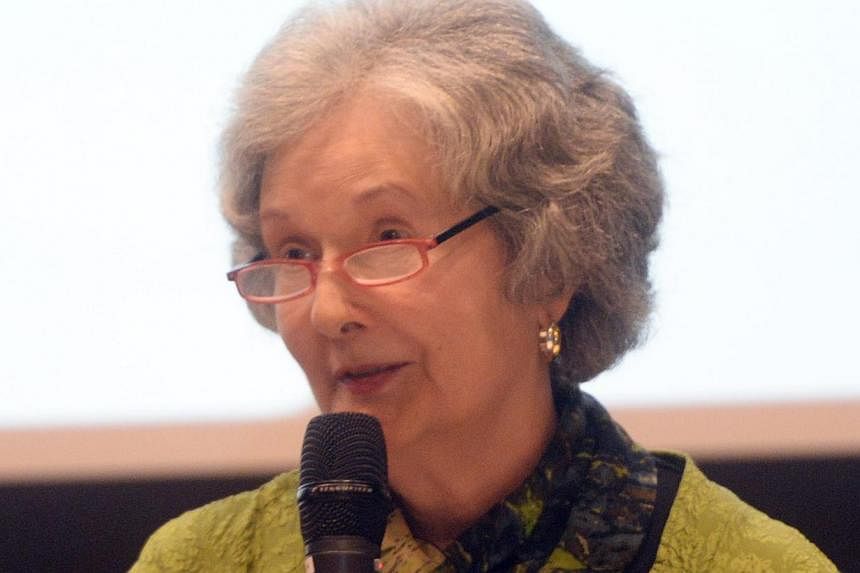Jean Davies Okimoto's children's book, The White Swan Express: A Story About Adoption, made headlines last year when the National Library Board (NLB) pulled it off the shelves after receiving complaints that it was not pro-family.
It tells the story of four different families, including a lesbian couple who adopt a Chinese baby.
Last night, the American author explained why she chose to co-write it with Elaine Aoki to an audience of more than 100 people at a talk at the National University of Singapore. "Elaine Aoki and her husband had adopted a baby from China and she asked me if I would like to write her story with her," said Okimoto, 72.
The characters, she explained, "reflected my values of being pro-family because I believe that families are defined by love".
Children from non-traditional families will also feel validated when they see themselves in stories, she said. "Knowing about differences enriches children's view and understanding of the world."
The grandmother of six travelled here with her husband at the invitation of Yale-NUS College's Professor Robin Hemley, the event's organiser.
Prof Hemley said the event was inspired by last year's book controversy, where at least six titles were removed by the NLB. Two were reinstated: The White Swan Express and And Tango Makes Three, which features two male penguins who raise a chick.
The issue of censorship in children's literature is a global one, he said, adding that in 1987, a group of people in Charlotte, North Carolina, attempted to get science fiction novel Flowers For Algernon removed from reading lists of local high schools as they felt it contained pornography.
"I don't want anyone to think that we are criticising Singapore, because we are not," he said.
Other speakers included local writer Suchen Christine Lim, as well as author Susannah Bright and children's literature expert Mark West, both from the United States. The discussion was moderated by local poet Alvin Pang and Yale-NUS student Abdul Hamid.
Lim, 67, said censorship and book selection is an "inevitable, eternal controversy".
Citing classical Chinese text San Zi Jing, or Three Character Classic, as an example, she said the book was banned in China during the Cultural Revolution but is now highly regarded, which shows the banning of a book sometimes has nothing to do with its moral context or literary merit.
"The censoring of books is closely related to the political and cultural context of a specific time and place. Politics, world views and values change over time. What is banned yesterday is unbanned and read today, then banned again tomorrow."
Yale-NUS student Lynn Lee, 21, said it is important to discuss censorship issues. "People who think they are in a better standing make decisions about what we read. It's inevitable, so it's important to have discussions about such issues."


